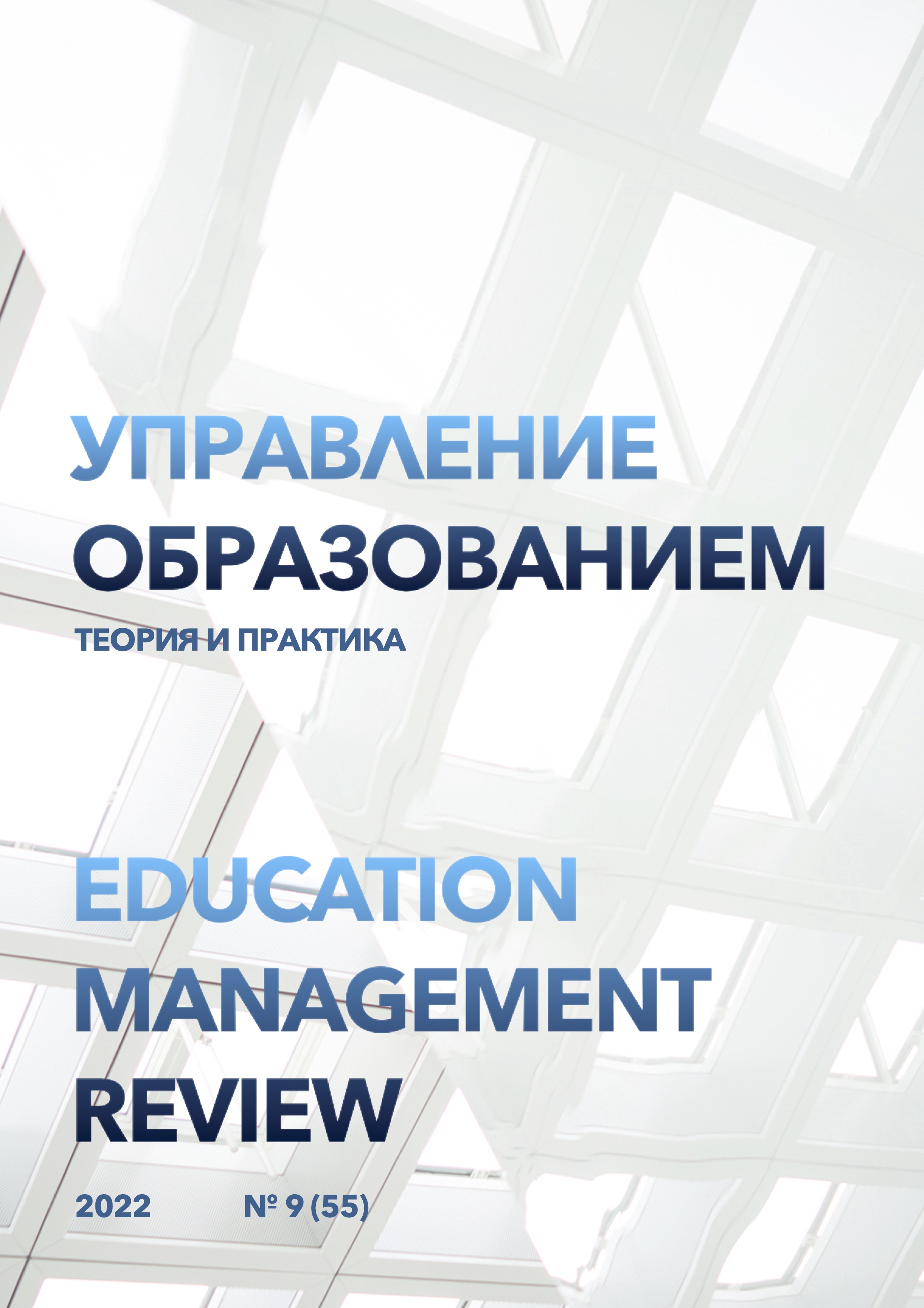Development of management competencies in the oil and gas industry
DOI:
https://doi.org/10.25726/t4397-9014-4042-zKeywords:
integration of knowledge, didactic principles, education, science, researchAbstract
The rapid fundamental political and socio-economic changes in the development of modern society require a rethinking and modernization of the content of its educational system. Modern educational activity should not only meet the needs of the time, but also be ahead of them, since it is a platform for the development of society and the development of the competitiveness of the national economy. It is difficult to dispute the fact that the importance of education is growing, which will be based on the principles of integration and the introduction of the latest systems of education and upbringing, against the background of the decline in the importance and attractiveness of the traditional organization of education, when the transfer of knowledge in the form of "processed material" ceases to be the basis of the educational process. The paradigm of modeling the educational process, which is based on a rational combination of several approaches to the organization of training and education, makes it possible to radically change and improve the professional level of future specialists. An important part of scientific research is the search and application of new pedagogical concepts, models, forms, methods, tools and technologies that are based on the latest achievements of science and the use of the intellectual potential of scientific and pedagogical workers, cadets, students. Modern pedagogical science defines integration as one of the main didactic principles, which are the "principles of learning", the fundamental ideas that are presented at all levels and components of education and emphasize their systemic integrity. They most definitely manifest themselves in the process of mastering educational material and relate to the study of all academic disciplines.
References
Аванесов В.С. Реформа, модернизация или стратегия развития образования - что сейчас важнее? // Россия: тенденции и перспективы развития. 2018. № 13-1. С. 804-809.
Анисимова Т.И., Шатунова О.В., Самирова Ф.М. STEAM-образование как инновационная технология для Индустрии 4.0 //Научный диалог. 2018. № 11. С. 322-332. DOI: 10.24224/2227-1295-2018-11-322-332.
Герасименко Н .А. Интеграция научных знаний в сфере филологического образования // Вестник Московского государственного областного университета. Серия: Русская филология. 2021. № 2. С 112-115 .
Диагностика личностных планируемых результатов освоения обучающимися основной образовательной программы среднего общего образования: учебно-методическое пособие / Д.Ф. Ильясов, А.А. Севрюкова, В.В. Кудинов, Е.А. Селиванова. Челябинск: ЧИППКРО, 2019. 264 с.
Канева М.А., Унтура Г.А. Модели оценки влияния экономики знаний на экономический рост и инновации регионов. Новосибирск: изд-во ИЭОПП СО РАН, 2021. 256 с.
Кирьякова A.B., Каргапольцев С.М., Каргапольцева Н.А. Образовательная интеграция в региональном университетском кластере // Высшее образование в России. 2018. № 10. С. 115-124.
Кобыльская О.В., Немцев И.С., Панчеенко И.С. Пути и механизмы повышения уровня естественно-математического и технологического образования в школе // Научное обозрение. Педагогические науки. 2017. № 2. С. 60-64.
Куклина М.В., Уразова Н.Г., Труфанов А.И., Маланова А.А. Образовательные вызовы экономики знаний // Современные проблемы науки и образования. 2021. № 2. https://scienceeducation.ru/ru/article/view?id=30568
Мирошникова Е.М. Религиозное образование в современной России: проблема дефиниции и тенденции развития // Научные ведомости Белгородского университета. 2017. № 24. С. 95-102.
Сыроваткина Т.Н. Развитие экономики, основанной не знаниях: теоретический аспект // Международный научно - исследовательский журнал. 2022. № 1. https research-journal.org)
Худовердова С.А., Сабельникова-Бегашвили Н.Н., Дамианова Е.В. Использование результатов исследований профессиональных компетенций педагогов в совершенствовании качества системы дополнительного профессионального образования. Стандарты и мониторинг в образовании. 2019. T. 57 № 2. С. 55-60.




